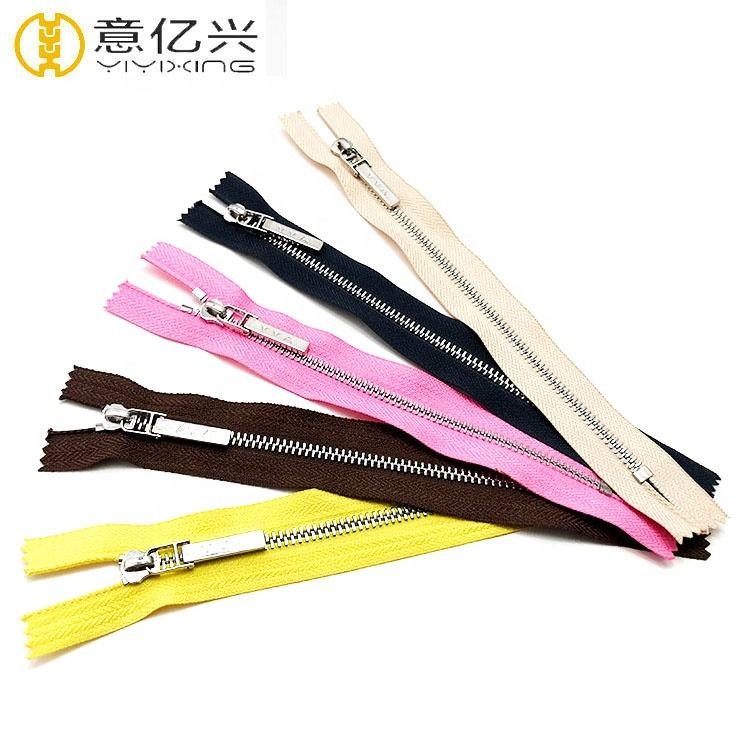Zippers are ubiquitous fastening solutions used in a wide range of applications, from clothing and bags to outdoor gear and upholstery. When it comes to custom zippers, understanding the differences between various sizes is essential in choosing the right option for your specific needs. In this article, we will delve into the dissimilarities between #5 and #10 zippers, exploring their characteristics, applications, and key considerations for custom zipper selection.
1. Size and Teeth Width:
The primary difference between #5 and #10 zippers lies in their size and teeth width. The numerical value represents the size of the zipper teeth in millimeters. A #5 zipper has a tape width of approximately 5mm, while a #10 zipper boasts a tape width of around 10mm. Consequently, #10 zippers have wider teeth compared to #5 zippers.
1. Strength and Durability:
The wider teeth of #10 zippers provide enhanced strength and durability when compared to #5 zippers. The larger teeth are better equipped to handle heavy loads and withstand greater stress and tension. Consequently, #10 zippers are typically used in applications that require robust fastening, such as tents, awnings, heavy-duty bags, and upholstery. On the other hand, #5 zippers are suitable for medium-duty applications and garments where strength and durability are important but not paramount.

1. Applications:
The choice between #5 and #10 zippers largely depends on the specific application and functional requirements. #5 zippers, with their medium size and teeth width, are commonly used in a wide range of applications, including jackets, jeans, backpacks, luggage, and soft-sided bags. They strike a balance between strength and flexibility, making them versatile for various fabric weights. In contrast, #10 zippers excel in heavy-duty applications that demand exceptional strength and durability, such as construction equipment covers, industrial bags, and boat covers.
1. Customization Options:
Custom zippers offer a plethora of possibilities to tailor the zipper to your unique preferences. Both #5 and #10 zippers can be customized in terms of color, length, puller style, and branding options. Whether you require a specific color scheme to match your product's aesthetics or desire a personalized logo or design on the puller, custom zipper manufacturers can accommodate these requirements for both #5 and #10 zippers.
1. Considerations for Custom Zipper Selection:
When selecting a custom zipper, it is crucial to consider factors beyond just size. Evaluate the specific needs of your project, including the intended use, fabric weight, desired aesthetics, and functional requirements. Determine the level of strength and durability required, as well as any particular customization needs. Collaborating with a reputable custom zipper manufacturer can provide valuable guidance in making an informed decision tailored to your project's unique requirements.
1. Cost Considerations:
The cost of #5 and #10 zippers can vary depending on factors such as material quality, customization options, and order quantity. Generally, #10 zippers are slightly more expensive due to their larger size and increased strength. However, the price difference may be justified for heavy-duty applications that demand the exceptional durability and reliability provided by #10 zippers. It is essential to assess the project's budget and long-term cost-effectiveness when making the custom zipper selection.
Conclusion:
Understanding the distinctions between #5 and #10 zippers is crucial for selecting the appropriate option for your custom zipper needs. While #5 zippers are versatile and suitable for medium-duty applications, #10 zippers offer exceptional strength and durability, making them ideal for heavy-duty purposes. Consider factors such as intended application, fabric weight, customization requirements, and budget when making your decision. By partnering with a reputable custom zipper manufacturer, you can ensure that your chosen zipper size meets your project's specific needs, providing the desired functionality, aesthetics, and long-term reliability.


